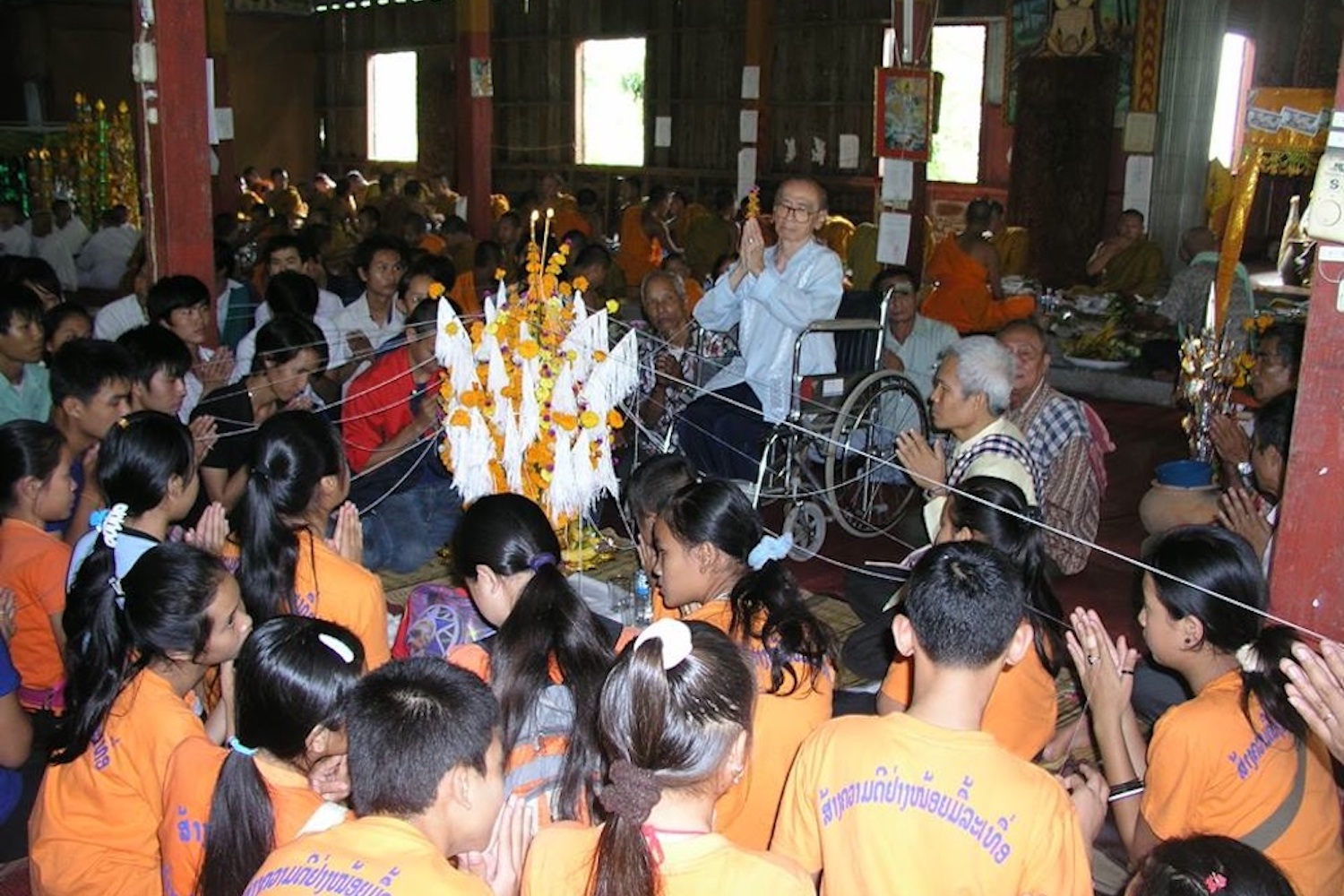 Lao social campaigner Sombath Somphone was allegedly abducted last December in Vientiane, but no one in authority wants to offer any clue to his whereabouts or fate
Lao social campaigner Sombath Somphone was allegedly abducted last December in Vientiane, but no one in authority wants to offer any clue to his whereabouts or fate
Since December 15 last year, when Lao social activist and Magsaysay Award winner Sombath Somphone went missing, his wife Ng Shui Meng has spent most of her time campaigning and working to ensure his safe return. It’s a daily struggle that so far has reaped no reward.
Sombath was last seen driving his jeep in Vientiane, where he was stopped at a police post and then driven away in a pickup truck by unidentified men.
Members of Sombath’s family, including his 85-year-old mother, are of course desperately concerned about his fate. His ageing and weak mother was still hoping to see her eldest son during Songkran, the traditional New Year festival also celebrated in Laos.
It is difficult for Shui Meng to explain to her mother-in-law why that Sombath appears to have been abducted, and why those in power are reluctant to help find him or offer any theory on his disappearance.
Born into a poor family in Ban Don Khio, central Khammouane province, Sombath spent most of his early life struggling with poverty, hunger and insecurity. He and his family had to seek refuge during the Indochina war in the 1960s. Like many others, Sombath was fortunate to get the opportunity to leave Laos and permanently settle in another country. However, he chose to return home and work for the better development of his country and people.
Well educated in the United States, Sombath could have chosen a life of comfort and prosperity in the West, but he chose a different path – to work to improve the lives of the poor in Laos. He worked tirelessly to promote sustainable development, and received the Ramon Magsaysay Award for Community Leadership in 2005.
Those in the Lao corridors of power should respect and admire Sombath’s work, but he has received no recognition or reward from the authorities of his homeland.
Many people in Laos believe Sombath was abducted by corrupt officials because of his campaign against mega-projects such as the Xayaburi Dam, but Shui Meng says Sombath had nothing to do with the dam.
Some people suspect the Asia-Europe Meeting’s People Forum, which he helped organised, might be part of the problem. The theory is that this forum for the poor was designed to embarrass the Lao authorities over development programmes, and the authorities took exception to it.
Shui Meng disagrees, saying civic groups organised the forum with the support of the Foreign Ministry. Sombath was just one part of it, and didn’t even take part in any panel discussions during the forum. There was no way his role or he himself could embarrass anyone in power, she says. Indeed, the forum helped contribute to the role of the Lao government in the international community.
Because of the dedication Sombath has shown for the country, Shui Meng and her family expected to obtain sufficient assistance from the authorities in the search for Sombath. However, people who are in a position to help find him have so far done nothing. People who used to be friends pretentiously express their concern and sympathy but prefer to distance themselves from the issue.
Shui Meng is a Singaporean, but has lived in Laos for more than 30 years. She speaks Lao fluently and knows many of the elite in Lao society, but none of these people have lent a hand to help her. Many people turn their back on her in public, as if they fear she’ll ask them to help find her husband.
Lao people are renowned for their gentle nature and kindness, so it is a shame that Shui Meng and the rest of Sombath’s family have been left alone to carry on the search. If more people showed the courage to become involved in the case, it would put greater pressure on the authorities to help find answers on the true circumstances of his disappearance, his whereabouts and, hopefully, his safe return.
